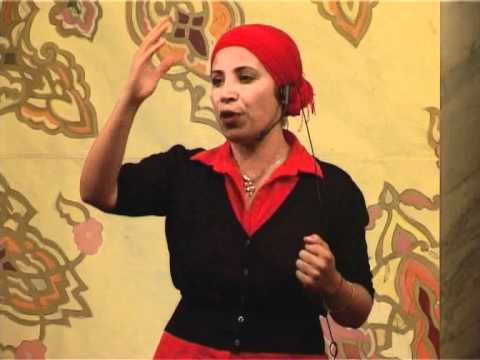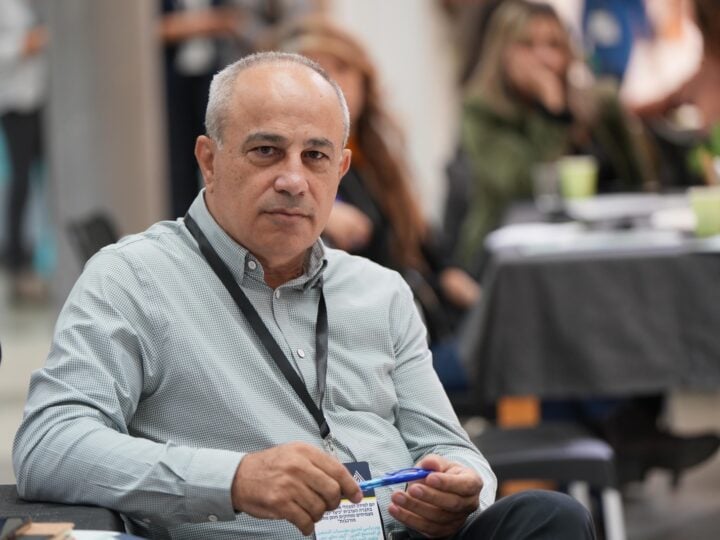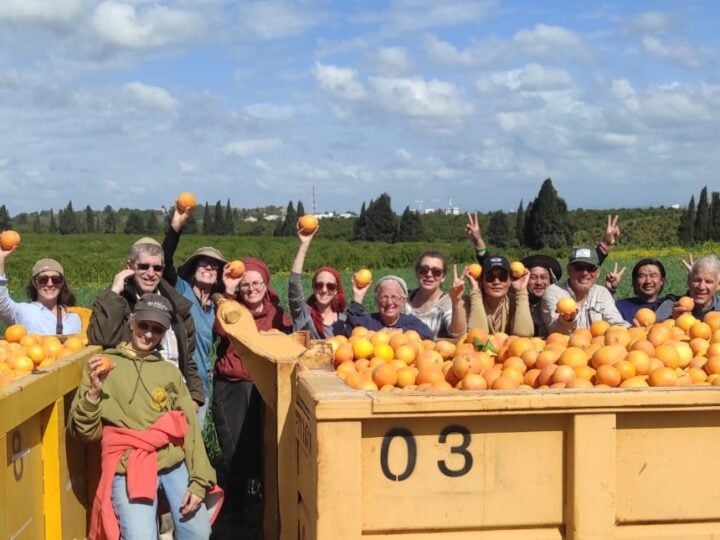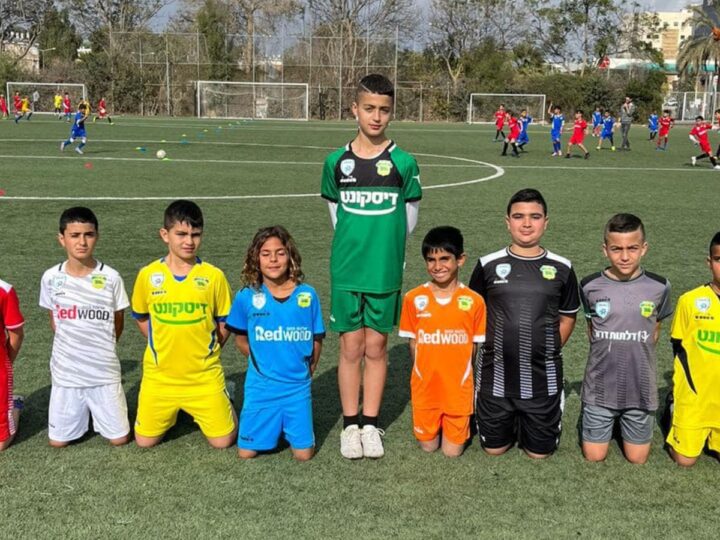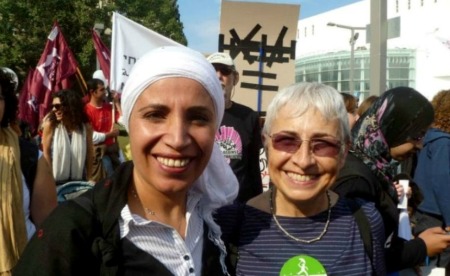
The word “coexistence” isn’t in Vivian Silver and Amal Elsana Alh’jooj’s vocabulary. In their work as co-executive directors of the Negev Institute for Strategies of Peace and Development (NISPED), Silver, 62, and Alh’jooj, 39, aim at creating a reality where Israel’s Arab and Jewish citizens won’t merely live side by side but will cooperate fully as equals.
“We believe that you don’t have to be against Palestinians to be a good Israeli, and you don’t have to be against Israelis to be a good Palestinian,” says Silver.
The unlikely duo won the seventh annual Victor J. Goldberg Institute for International Education Prize for Peace in the Middle East last June in recognition of their efforts to advance peace, partnership and tolerance between Jewish and Arab communities.
Describing themselves to ISRAEL21c as “very political,” the women advocate for policy change, but the heart of their work is in the field, trying to raise the standard of living of the Negev Bedouin population to match that of the Jewish population.
Alh’jooj is founding director of NISPED’s Arab-Jewish Center for Equality, Empowerment and Cooperation (AJEEC), an Arabic word that means “coming toward you.”
“It’s not just a name but an approach,” says Alh’jooj. “Cooperation between us is not a choice, but a must, if we want to build a future. We can’t do that without empowering the Bedouin community.”
Taking responsibility for their future
Over the last 11 years, AJEEC has put in place community development projects to empower Bedouins to become responsible for their own welfare. This is a new approach. “Among activists and volunteers, the language is different now,” says Alh’jooj. “We are talking about rights and about being part of the solution.”
In 37 “unrecognized” villages where many Negev Bedouin families choose to remain despite the lack of infrastructure and services, AJEEC has brought in 700 volunteers to help kids with homework; run youth movements; teach women and students about health risks involved in early marriage and consanguineous marriage; and help dropout girls get back into school.
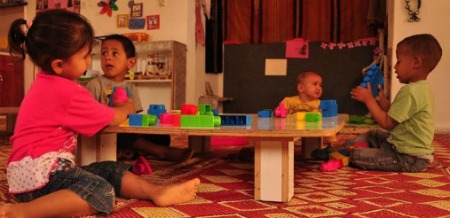
AJEEC’s 21 daycare centers employ local mothers who otherwise couldn’t work outside the home. The volunteers have trained Bedouin women to be photographers, DJs and caterers for a social business providing 3,000 hot meals daily. Arab and Jewish municipalities of the Negev are eager to replicate these model programs, says Alh’jooj.
A year-long community service program with Tzofim Israel Scouts involves 18 to 20 Jewish high school graduates and an equal number of Bedouin high school graduates. The program begins with separate identity-building workshops “so that they come together with pride in who they are,” says Silver, and then a joint workshop before fanning out to work in Bedouin and Jewish schools.
“We also have a junior high school program called Negev L’Kulanu [Negev for All of Us], where we train teachers to bring Arab and Jewish pupils together not only in dialogue but in projects that they decide on together,” says Silver. The projects range from environmental programs to working with kindergartners in an unrecognized village.
“On a national level, Amal and I are active in coalitions advocating for a shared society. We believe we have a personal message that should be transferred nationally.”
An unwanted child
As Alh’jooj describes in her recently posted TedX Jaffa presentation, she was the fifth of five girls born to an Arab Bedouin family living in the Laqiya unrecognized village.
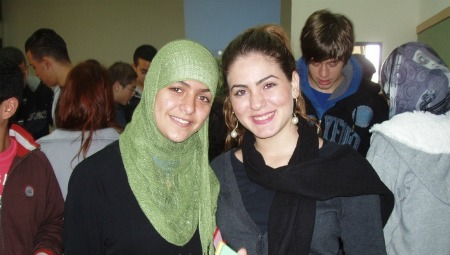
http://www.youtube.com/watch?v=k-ThmexWvfg
“It was a tragedy for my parents that I wasn’t a boy, so they named me Amal, which means ‘hope,’ in the hope of having boys. And five boys were born after me. I grew up in an atmosphere where if you are a girl you are not in the center. You will not get new clothing like your brothers, and you will not get the best piece of chicken at dinner,” she tells ISRAEL21c.
When she was five, she started shepherding the family’s flock and so learned the art of community organizing at a tender age. “What you do with sheep you can do with people. You can organize them and bring them to an understanding of their situation, and to [taking] greater responsibility.”
Laqiya’s residents “blamed the Jewish people for everything,” she says. “My village was politically active and I had uncles in jail for their involvement in the PLO [Palestine Liberation Organization]. I was very extremist and didn’t want to learn Hebrew in high school.”
At 14, she started teaching women reading and writing, and at 17 established a Bedouin women’s organization focusing on rights and political resistance. Even during her social work studies at Ben-Gurion University, Alh’jooj did not make friends with Jewish classmates.
In Montreal to earn her master’s degree at McGill University, she was on a bus and heard a little girl talking to her mother in Hebrew. “All of a sudden, the language of the ‘enemy’ became the language in which I felt very safe,” she relates. “I said, for the first time, ‘I’m from Israel,’ and the mother and daughter took me to the place I wanted to go.”
When a Jewish English tutor was recommended to her by the university, Alh’jooj phoned her father to ask what she should do. He told her that the Jewish new year was approaching and that she should take an apple and honey to the tutor to wish her a sweet new year, “shana tova.” The tutor told the story to everyone at McGill, says Alh’jooj.
“I didn’t give up my Palestinian identity, but I came to understand more what is the situation of the Jewish people. When I came back, I realized it can’t be that Jewish people caring about human and social rights are only in Canada. So I set up a community advocacy center with the Jewish community in a disadvantaged neighborhood in Beersheva. I was an Arab coming to help Jews, which wasn’t easy for them, but it empowered me.”
‘We just took off’
Silver moved with her husband and two sons to a Gaza border kibbutz from Winnipeg in 1974. She became active with NISPED almost from the time it was founded by Dr. Yehuda Paz in 1998 as a non-profit association to promote peace and development through education, training and project development for societies in transition.
“We were running cross-border projects and international courses in Russian, Spanish, Arabic and English,” she says. “I was looking to increase our organizational capacity in Arabic, and was told that there weren’t Bedouin lecturers available. Then I heard about Amal, who had just come back from McGill. She was a little suspicious but agreed to run two courses, one in Gaza and one in Jenin.”
That was 11 years ago. Eventually, Alh’jooj came on board full time and founded AJEEC.
“We understand it’s a very challenging process,” says Alh’jooj, the mother of eight-and-a-half-year-old twins. Her attorney husband co-chairs the Hagar Association, founded in 2006 in Beersheva to promote cooperation, mutual trust and understanding through a Jewish-Arab school and a community outreach program.
Twenty percent of AJEEC’s funding comes from Israel’s Ministry of Industry, Trade and Labor, which pays for each child in the Bedouin early childhood program. “It’s precedent-setting for Israel,” says Silver. “We have our own code in the Treasury.”
Some 180,000 people benefit from AJEEC programming, also funded by private foundations and federations in the United States, the US-Middle East Partnership Initiative, the Belgian Foreign Ministry, the Dutch Embassy and the British Embassy.
Silver found out about the peace prize while doing dishes in the kibbutz kitchen. “It’s recognition of the work we do and affirmation of our vision and our personal partnership,” she says. “We come from two very different narratives but have a common vision of what life could and should be like.”




